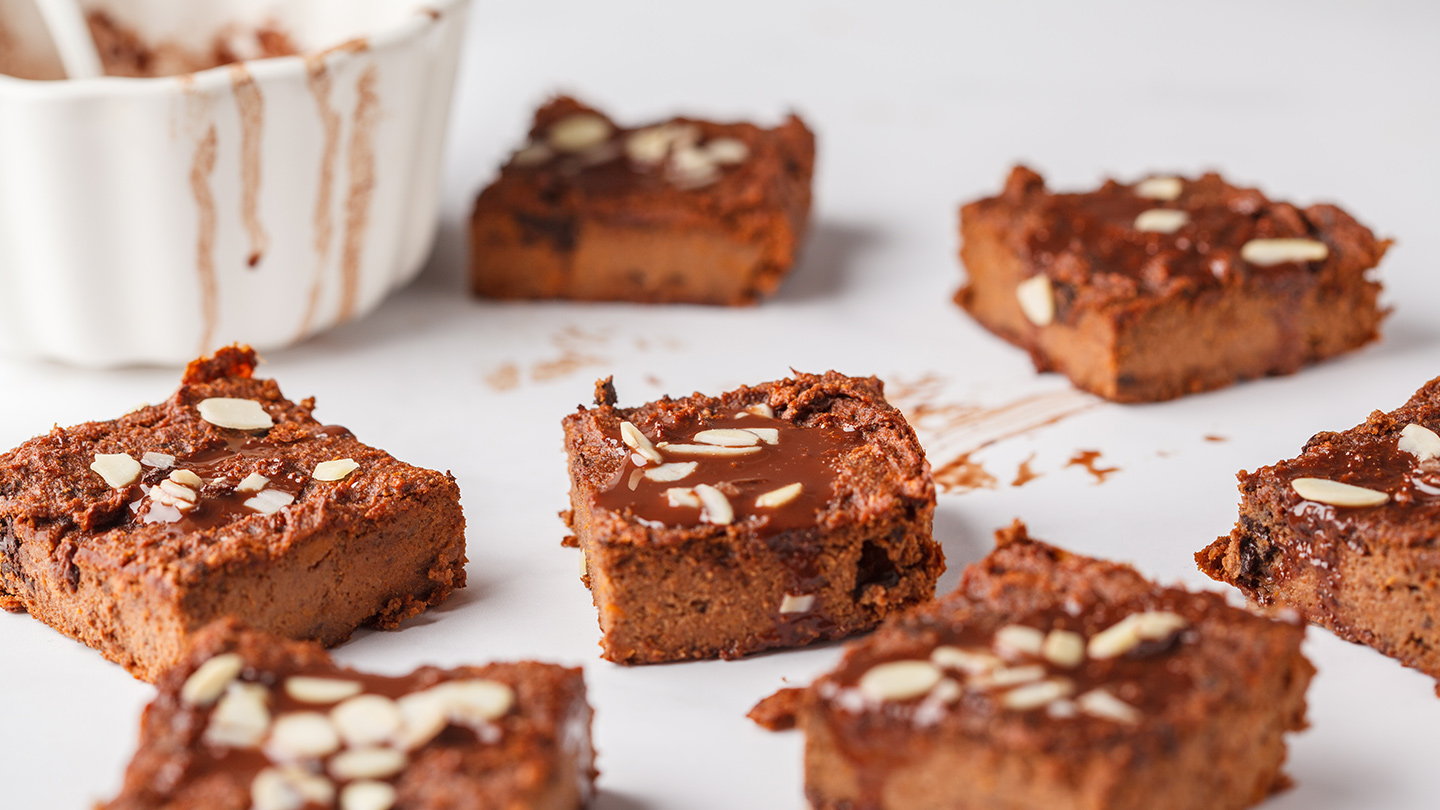Nutrition
Kanji Recipe With UR.Life Cafe
Experience the vibrant spirit of Holi, with Kanji,a cherished traditional beverage of North India. This probiotic powerhouse, traditionally crafted from black carrots, not only tantalises the taste buds but also offers a burst of health benefits.

Holi is a time for people to come together, socialise, and strengthen bonds with friends and family. Refreshment beverages are often served as part of the hospitality extended to guests during Holi gatherings, fostering a sense of camaraderie and shared joy among attendees. Holi is often celebrated outdoors, and the festivities can be physically demanding, especially under the sun. Refreshment beverages like Thandai, fruit juices, fermented drinks such as kanji or chilled water help keep participants hydrated, ensuring that they can fully enjoy the festivities without succumbing to dehydration.
Get instant access to personalised nutrition advice just for you. Sign up here.
Goodness of Kanji
Kanji is a healthy drink made in Northern India. It's similar to Kombucha, but the way it's made is different. It's good for your stomach and helps with digestion because it has probiotics. Kanji provides a delightful respite from the excitement and heat of the Holi celebrations. The sweet and sour taste of the kanji makes it a beloved beverage enjoyed by people of all ages during Holi.
The combination of carrots, spices, and salt in Kanji provides a flavorful and nutritious beverage with potential health benefits ranging from improved digestion and immune support to reduced inflammation and enhanced nutrient absorption.
The ingredients used to make Kanji offer a variety of potential health benefits:
1. Carrots
Carrots are rich in vitamins and minerals, particularly vitamin A, vitamin K1, potassium, and antioxidants like beta-carotene. They support eye health, promote healthy skin, boost immune function, and may reduce the risk of chronic diseases such as heart disease and certain cancers.
2. Mustard Seeds
Mustard seeds are a good source of nutrients like selenium, magnesium, and omega-3 fatty acids. They have anti-inflammatory properties, aid digestion, promote cardiovascular health, and may help regulate blood sugar levels.
3. Red Chili Powder
Red chilli powder contains capsaicin, a compound known for its anti-inflammatory and pain-relieving effects. It may boost metabolism, aid in weight loss, improve circulation, and provide relief from congestion and respiratory symptoms.
4. Salt
While salt is typically used in moderation in Kanji, it plays a vital role in maintaining electrolyte balance, nerve function, and fluid balance in the body. However, excessive salt intake can contribute to high blood pressure and other health issues, so it's important to use it sparingly.
5. Fermentation
The fermentation process involved in making Kanji enhances its nutritional profile by increasing the bioavailability of nutrients and producing beneficial probiotics. These probiotics support gut health, aid digestion, strengthen the immune system, and may reduce the risk of certain gastrointestinal disorders.
Related Post: Healthy Holi Beverage—Vegan Sugar-Free Thandai
How To Make Kanji?
Normally, Kanji is made with black carrots, which gives it a dark purple colour. But if you can't find black carrots, you can use red ones too. Fermentation changes the taste of the drink and makes it probiotic. It ends up tasting slightly sweet and sour with a unique fermented smell.
To make Kanji, mix carrots, spices like mustard seeds, red chilli powder, and salt with boiled and cooled water. Then, let it sit for a few days to ferment.
Put everything in a glass or ceramic jar and leave it out in the sun for 2 to 4 days. If it's not sunny enough, you might need to leave it for 4 to 5 days. But if it's hot, it might only take 1 to 3 days.
Related Post: Carrot Ginger Soup
Kanji - Full Recipe
 8
8
serves 40
40
K calories 15
15
minutes 3/10
3/10
simplicity
Easy Steps
01Rinse and peel the carrots and beetroots. If you don't have red carrots, orange carrots can be used as a substitute. If you prefer not to use beetroots, you can replace them with an additional medium-sized carrot. Cut them into 1.5 to 2-inch long sticks or batons.
02Boil the water and let it cool to room temperature. Cover the pan once the water has cooled.
03In a clean ceramic or glass jar with a wide mouth, add the carrots, beetroots, ground yellow mustard powder, black salt, regular salt, or pink salt, and red chilli powder or cayenne pepper. Mix all the ingredients using a clean, dry spoon.
04Loosely cover the jar with a lid or secure a muslin cloth or cheesecloth on top of the jar. Place the jars in direct sunlight for 2 to 3 days, or up to 4 to 5 days depending on the sunlight in your area. Fermentation time varies; 1 to 2 days of intense sunlight is sufficient, while 4 to 5 days may be necessary on cloudy days. Ensure proper fermentation without overdoing it.
- 5 to 6 medium-sized carrots
- 2 small-sized beetroots
- Approximately 8 cups (about 2 litres) of boiled water
- 2 teaspoons of red chilli powder or cayenne pepper (adjust to taste)
- 2 tablespoons of yellow mustard seeds or 1 tablespoon of black mustard seeds
- 1 tablespoon of black salt, regular salt, or pink salt (adjust to taste)
Stir the contents with a wooden spoon or shake the jar gently every day. When the kanji tastes sour, it indicates that the drink has fermented.
06Serve the carrot kanji immediately or refrigerate it. It can be stored in the fridge for about 4 to 5 days. You can add ice cubes before serving or refrigerate it to chill.

Nutritive Value
- Carbohydrates: 7g
- Protein: 1g
- Fat: 1g
Kanji, a traditional North Indian fermented drink, offers not only a refreshing beverage option but also potential health benefits. Made with simple ingredients like carrots, spices, and salt, Kanji undergoes a fermentation process that enhances its flavour profile and nutritional value. Rich in probiotics, Kanji supports gut health, aids digestion, and may contribute to overall well-being. Its versatility allows for various serving options, from enjoying it as a standalone beverage to incorporating it into meals as a condiment or topping.
Get instant access to personalised nutrition advice just for you. Sign up here.
EXPLORE MORE
Bright, tangy, and naturally refreshing, this orange chutney offers a burst of citrusy sweetness with a gentle hint of spice. It’s the perfect accompaniment to elevate daily meals with freshness and depth.
Fudgy, rich, and naturally nutrient-packed, these sweet potato brownies offer deep chocolate flavour with wholesome ingredients that nourish as much as they satisfy.
Bright, earthy, and naturally prebiotic-rich, this beetroot salad is a refreshing gut-friendly bowl that supports digestion, boosts good bacteria, and adds colour to your everyday meals.
Rustic, bright, and full of fire-roasted flavour, this simple Bihari-style chokha turns everyday tomatoes into a smoky, tangy, comforting side that lifts everything, from litti to dal-chawal.






.jpg)

.jpg)
.jpg)
